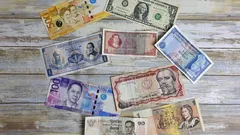
We all put our hard-earned cash in the bank, whether it's for emergencies, future plans or just for peace of mind. But what happens if there were new rules to save? There's a big change coming that has sparked the interest of almost every Filipino who has accounts or invests in time deposit. New tax regulations could soon impact the amount you get through your savings. Could this mean you'll end up earning less? Let's discover the ways these changes could impact your wallet, and what you can do take action to stop it.
Understanding the Proposed 20% Tax on Bank Deposits
The tax currently imposed on interest earned of bank deposits is 15 percent. Lawmakers are currently discussing a proposal to change to 20 percent. This would not only affect the regular savings accounts but additionally time deposits, trust funds and other investment products. The plan is designed to simplify and standardize the manner in which the taxation of interest income is done, bridging the gap with other forms of income from investments. According to experts in finance the tax hike could impact thousands of people who have bank accounts across the country especially those who have an increasing amount of savings or fixed-term investment.
What Does a 20% Tax Really Mean?

Let's simplify it — Let's say that if you make P1,000 in annual interest from your savings account at the bank you typically pay P150 in tax. This leaves you with P850. With the new tax plan the tax will rise to P200, which means you'll only have the P800. This may seem small but for those who have higher balances or goals for the future the difference can add up over time. The most significant impact is for regular savers who depend on interest to increase their emergency savings or nest egg.
Around 80 percent of Filipino adults have bank accounts, according to Bangko Sentral statistics, which makes banking among the most popular types of savings across the nation.
Why Is the Tax Change Happening Now?
The government is focusing on accumulating funds for infrastructure and public services. A higher tax rate of bank interest can be viewed as more fair method of generating revenue because it is in line with the way other investment income, such as bonds and stocks are taxed at 20 percent. The policymakers believe this will close loopholes and promote an easier, more uniform approach to the entire range of financial services. The change could take effect once the law has been approved and implemented.

How To Keep Your Money Growing
If you're concerned about missing out, don't worry. Be smart. personal financial habits can help you offset the tax increase. Here are some key strategies to keep your finances in check despite the increased tax on interest earnings:
- Look into savings accounts or digital banks that offer more attractive rates for promotions.
- Look into other investment choices, such as the government bond or pooled fund for better returns.
- Review and revise your savings plan on a regular basis to keep up with tax changes and inflation
- Always save even if the interest is lower, to create a financial cushion
Who Will Feel the Impact Most?
People with large time deposits or deposits will experience the biggest changes. However, everyday Pinoys — like families who save for retirement or tuition are likely to be impacted by. For a lot of people, even smaller reductions in their interest income could require adjusting their plans for the future or rethinking ways to increase growth.
For those who are a fan of financial information, this is a reminder to be aware of the latest developments at your local banks. A little awareness can go a long way. If you'd like greater control over the growth of your savings keeping yourself up to date is crucial.
What You Can Do Before the Law Takes Effect
Experts suggest reviewing your savings accounts and investment options. If you've got time deposits due to expire in the near future, it could be beneficial to compare new rates prior to reinvesting. Think about consulting a financial advisor to determine if you could benefit from other options such as digital banks and other savings plans that are tax-advantaged that are available in the financial markets.
The changing of regulations is a common aspect of the banking industry, and adjusting can make a big impact on your financial wellbeing. Be on the lookout for announcements from the Bangko Sentral or your bank about the exact date when the tax rate change will come into effect and how your account are affected.
Saving money is about playing a long-term game. Even if the tax rate is higher, every penny is a contribution to your future. The most important thing is to make educated choices, be disciplined and seek out ways to stretch your money, like finding accounts that provide additional benefits or joining banks' loyalty programs. Be aware that a tiny change today can be a huge difference over many more days.
From where I'm from, tax rates often confused me. But taking the time understand the impact of each tax rate on my savings proved to be beneficial and increased my confidence in managing my money. It's uplifting to see all the fellow Pinoys paying attention to and taking steps to safeguard their money-spent savings. It doesn't matter if it's learning about money management tips for PH or keeping up to date with the most recent BSP tax news being informed will ensure that your personal financial situation remains healthy. This is why when people look for how tax impacts savings and investments, it's more important than ever.
 Meg Magazine
Meg Magazine















Comments